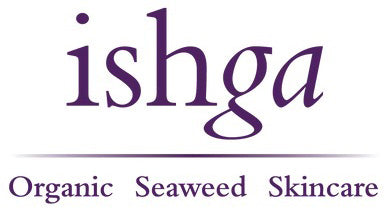
Collagen vs. elastin - whats the difference?
Share
Collagen and elastin: Words you may already be familiar with in the skincare world, but what do they actually mean for our skin?
Each play a vital role in skin and body health and have their own functional differences. Read on to learn about the importance of these proteins and how we can protect them to maintain nourished, healthy skin.
Two proteins, two functions
Collagen and elastin are both proteins found in the body but have different roles. The main role of collagen is to provide support and structure in the body while elastin is there to provide the stretchiness.
What is collagen?
Collagen is the most abundant protein in our bodies. It plays a vital role in our overall health as it helps to support and provide structure to our skin, bones, muscles and connective tissues.
It is made up from 3 amino acids (molecules that combine to form proteins); proline, glycine and hydroxyproline. Groups of these amino acids combine and create a triple helix structure.
What does collagen do?
- Plays a role in replacing dead skin cells.
- Promotes cell growth.
- Gives strength and structure to your skin.
How many types of collagen are there?
There are 5 common types of collagen that support the body in various ways.
- Type I This type makes up 90% of your collagen. It provides structure to your skin, bones, tendons and ligaments.
- Type II Found in elastic cartilage, which provides joint support.
- Type III Found in muscles, arteries and organs.
- Type IV Found in the layers of your skin.
- Type V Found in the cornea of your eyes, hair and some layers of skin.
What happens to collagen as we age?
As we get older our bodies start to produce less collagen and it’s broken down at a faster rate. After around the age of 25, collagen production reduces about 1-2% per year and is broken down quicker by an enzyme called collagenase, which leads to fine lines and the loss of skin structure.
What can I do to reduce the effects of collagen loss?
- Look for skincare products containing antioxidants. These compounds provide protection against environmental damage to the skin by neutralisling damaging free radicals.
- Introduce seaweed skincare. Studies show that fucoidan-rich seaweed increases collagen production, playing an essential part in the repair and regeneration of the skin. Seaweed’s that we hand harvest from the mineral rich waters of the Hebrides have been found to contain bioactive compounds which block the enzyme that breaks down collagen (collagenase), preventing visible signs of ageing. It also contains high levels of antioxidants.
- Wear SPF daily, even when it’s cloudy!
- Eat a well-balanced diet
You can view our full seaweed range here.

What is elastin?
Found in the dermis skin layer elastin is a naturally occurring stretchy protein. The structure closely resembles an elastic band as it can extend and recoil back and forth.
What does elastin do?
- Allows tissues to stretch and rebound.
- Gives skin its elasticity and flexibility, like when you smile for example.
What amino acids are in elastin?
- Glycine Makes up 35% of the elastin structure.
- Proline A water-repellent amino acid that makes up 14% of the elastin structure.
- Alanine A glucogenic and branched-chain amino acid that assists in protein synthesis (the creation of proteins by cells).
- Valine A water-repellent amino acid amino acid that has stimulant qualities.
- Tropoelastin A water-soluble molecule that can stretch up to eight times its normal length.
What happens to elastin as we age?
Much like collagen, the effectiveness of our elastin depreciates over time as elastin fibers break down. Skin loses its thickness and structural integrity, and becomes less visibly firm and plump. This becomes most noticeable during our 30’s to 40’s and particularly in the first five years of menopause, when women's skin can lose around 30% of its collagen.
What can I do to reduce the effects of elastin loss?
- Keep skin and body hydrated. Use a moisturiser that will lock in hydration and keep your skin supple and healthy. Our Anti-oxidant Marine Cream will nourish thirsty skin and leave it feeling plump and hydrated. Remember to drink plenty of water every day too, your skin will thank you for it!
- Look for products containing antioxidants. These compounds provide protection against environmental damage to the skin by neutralisling damaging free radicals.
- Collagen and elastin work together to provide structure to our skin. Seaweeds that we harvest have been found to contain bioactive compounds which block the enzyme responsible for breaking down collagen. By introducing the wonder of seaweed to our skincare, we can reap the benefits of its protective properties to provide lasting nourishment for our skin.
- Wear SPF daily, even when it’s cloudy!




